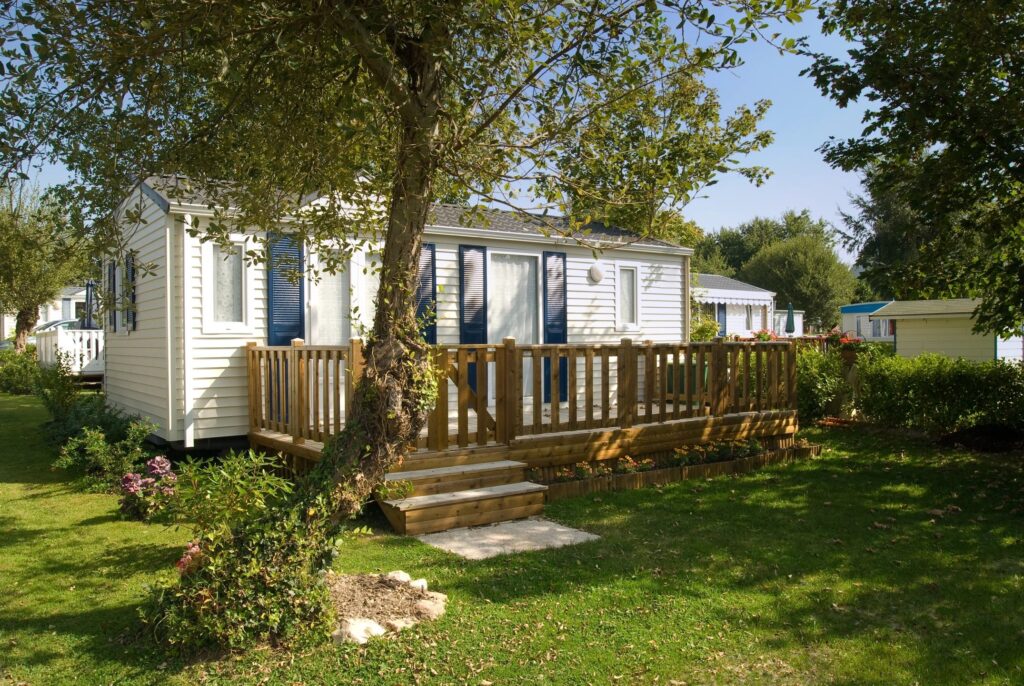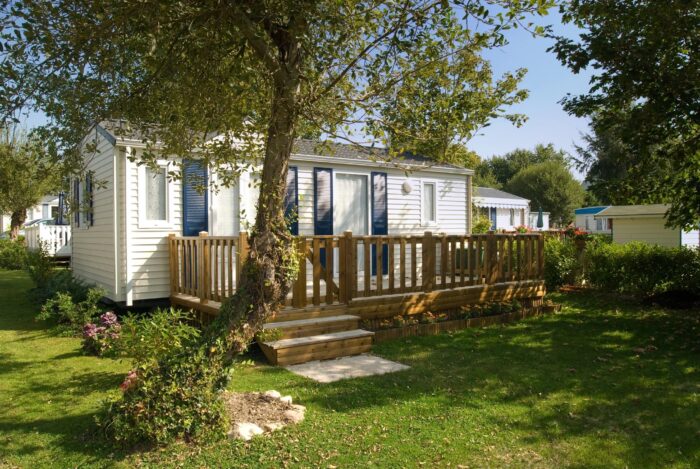
What You Need to Know About Manufactured Home Insurance
Manufacturing is a major American industry. These companies and individuals work to fabricate materials and products to be used around the country. The processes and materials used in the manufacturing process, however, are not the same as in the early days. This means the products being produced today are more affordable and reliable than they used to be.
It seems like almost everything is manufactured, even some types of homes. Manufactured homes, otherwise known as mobile homes, are rapidly growing in popularity. But these homes are very different from the more traditional homes.
Everything from the functionality to the all-important and necessary mobile home insurance requires a change of expectations and perspective. These homes may be different, but they are one of the most versatile, and customizable, ways to create a home sweet home.
What is a manufactured home?
The broadest definition of a manufactured home is a factory-built home that is built after June 15, 1976. This date and distinction are so important because they differentiate a manufactured home from a mobile home.
The U.S. Department of Housing and Urban Development created and enacted new federal guidelines that changed how mobile homes were and still are manufactured. It was on June 15, 1976 that these new guidelines went into effect. Until that point, every manufactured home was considered a mobile home.
The more modern manufactured homes have taken some big strides away from the more traditional mobile homes. Today’s manufactured homes offer a wide variety of floor plans, upgrades, and modern amenities.
These homes are also a lot less mobile. They are purchased and moved just a single time to the purchased or leased plot of land. The more traditional mobile homes are built to be moved multiple times and across different types of terrain.
Is a mobile home a manufactured home?
So there are definitely similarities between mobile and manufactured homes. In most cases, these terms are used interchangeably. Both mobile and manufactured homes are created and built in factories and regulated by the U.S. Department of Housing and Urban Development.
The true differences are in the date of fabrication and amenities. Any home built in a factory before that June 15, 1967 date is strictly a mobile home. The regulations and specifications before that date were much looser before 1967, so the early mobile homes were quite varied in design and functionality.
In the early days of manufactured and mobile homes, the design and floor plans were fairly limited. Most of these homes came in single or double wide options, but the layouts were pretty repetitive. Today’s manufactured homes offer design options and amenities like vaulted ceilings, walk-in closets, and even bedrooms large enough for a king bed.
Advantages of a Manufactured Home
Many people wonder when, or if, manufactured homes are a good idea. In reality, however, manufactured homes offer several advantages and benefits. One of the biggest advantages is the price.
These homes are much more affordable than a traditional home. The types of materials and manufacturing process help keep the overall cost lower without sacrificing too much on space and finishes. Additionally, these homes can pack in a number of bedrooms, bathrooms, and design features in a small but functional space.
Manufactured homes are also highly customizable. Many companies offer several options for floor plans, amenities, and finishes.
Manufactured home buyers can create a comfortable and personalized space. These same companies offer a catalog of options and finishes for home buyers to choose from when designing a manufactured home.
Because these homes are manufactured at a factory, rather than being built on site, there are fewer delays and a shorter completion timeline. The overall creation process has been streamlined for efficiency and materials are more readily available.
This means the time from order to delivery is much shorter. People who purchase manufactured homes can move in and start enjoying their space much more quickly than most traditional home buyers.
Manufactured homes also provide homebuyers with peace of mind. The quality and safety ratings of these homes have improved significantly since the introduction of the U.S. Department of Housing and Urban Development’s improved regulations in 1976. People who purchase manufactured homes don’t need to worry about the quality or safety of these homes.
Some people see manufactured and mobile homes as an investment opportunity as well. People do choose to invest in mobile homes as revenue-producing options in a world with fewer and fewer residential options. These arrangements can be quite lucrative.
Concerns of Manufactured Homes
There are, of course, some disadvantages to consider when looking into manufactured and mobile homes. These disadvantages should be considered and weighed against the advantages offered by manufactured homes.
The biggest issue with manufactured homes is where to place them. Because these homes are created and built in a factory, they are not associated with a piece of land. The purchaser of a manufactured home is responsible for organizing an acceptable place to construct the home.
The purchasing or renting of land can be difficult. There may be limited pieces of land to choose from. Those that are available can be very expensive.
The options to finance a manufactured home can be just as difficult to find as land. There are limited institutions that offer financing for these homes, and the interest rates can be higher than traditional home loans.
Societal pressure and perceptions can also be a drawback for some manufactured home buyers. There are some stigmas associated with these types of homes and some purchasers may be wary of those.
How do you insure a manufactured home?
As with most large purchases, you want to make sure your investment is protected. Manufactured and mobile insurance policies are very similar to more traditional home insurance policies.
They usually include dwelling, personal property, and liability coverage. There are a number of additional coverages that can be added to a policy to fit a wide range of needs.
Manufactured and mobile homes might be a little less traditional, but they are great options in today’s housing market. They offer a level of affordability and personalization that is almost unmatched. These homes are rapidly making a name for themselves and are offering a different kind of lifestyle for their homeowners.
 Laura Gunn researches and writes for the home insurance comparison site, MobileHomeInsuranceQuotes.org. She is passionate about educating people about manufactured homes — the pros, cons, and insurance needs.
Laura Gunn researches and writes for the home insurance comparison site, MobileHomeInsuranceQuotes.org. She is passionate about educating people about manufactured homes — the pros, cons, and insurance needs.








This is very interesting information, definitely good to know! I have some land that I may want to put a manufactured home on someday.